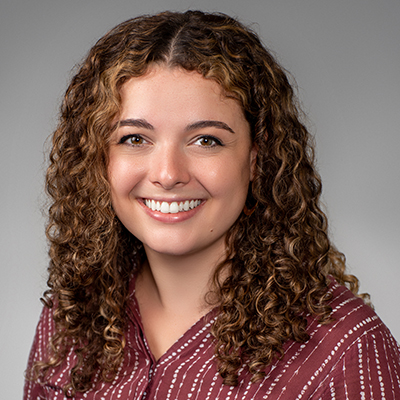Presenter Profile

Shannon Coleman, MD
Emory University Pediatrics Residency Program
Shannon.Coleman@emory.edu
Shannon Coleman is in her 3rd year of Emory University's Pediatrics Residency Program. Her background includes obtaining a BS in Public Health from American University in Washington, DC and an MD from University at Buffalo Jacob's School of Medicine, in her hometown of Buffalo, NY. Her interests have focused on Social Determinants of Health and Global Health throughout her education, with a newfound passion for Injury Prevention since starting residency. After graduation, she plans to work as a nocturnist and continue research before ultimately pursuing a fellowship in Pediatric Critical Care.
Presentations
Evaluating Safety Baby Showers as an Approach to Improve Parental and Pediatric Resident Practice of Infant Injury Prevention
Shannon Coleman, MD
Heather Hirsch, MD, MPH
Christine Kaba, MD
Melissa Adams, MD
Vidya Menon, MD
Kaitlin Hannan, MD
Brooke Evans, MD
Andrew Potter, DO
Timothy Moran, Ph.D
Unintentional injuries are the leading cause of death for people ages 1-44 and the fifth leading cause of death for infants. Injury prevention counseling has been shown to reduce unintentional injuries. Safety Baby Showers (SBS) are educational events that aim to improve expectant parent knowledge of infant safety. Pediatric resident physicians are resources for families, but don't always discuss injury prevention during patient encounters. In one study, less than half of pediatric residents mentioned injury prevention in well-child visits and only one minute was devoted to these topics if discussed. As a follow-up to previously presented work, we will discuss the evaluation of our SBS program aimed at improving pediatric resident and expectant parent infant safety knowledge and comfort.
We conducted SBS events in partnership with Centering Pregnancy, a group prenatal care model for low-income expectant mothers. Participants rotated through six safety stations covering infant-specific injury prevention topics. Participants received educational materials and an incentive gift bag with approximately $75 worth of safety items. Raffles were held for larger items such as car seats. Participants completed pre- and post-SBS surveys to assess effectiveness in improving parent knowledge and confidence. Follow-up surveys were sent out to participants 3-9 months after SBS attendance to determine long-term impact. We assessed baseline pediatric resident knowledge and comfort with infant injury prevention topics via survey in fall 2023. Residents who attended SBS events completed an additional survey to assess attitudes regarding SBS clinical impact.
We’ve hosted three SBS events with 76 participants; 40% identifying as first-time parents. Participants had significant improvement in knowledge of infant safe sleep positions, with 47% identifying the back as the safest position for sleep in pre-survey and 76% in post-survey. Participants had significant improvement in knowledge of car seat transitioning time, from 31% correct in pre-survey to 54% in post-survey. Participant confidence increased in multiple areas, including child passenger safety and choking management.
Approximately 55% of pediatric residents completed a baseline survey. Over half reported never previously receiving infant safety training. The most frequently reported safety topics residents discussed in patient encounters were safe sleep (93%), formula mixing (75%), and car seats (87%). Most residents reported discussing car seats with families, it was one of the most uncomfortable topics to review. Additionally, 75% of residents who volunteered at a SBS felt it was a very good/excellent educational activity, and two-thirds would use what they learned from the showers in clinical practice.
Infant safety can be overwhelming for parents and residents. Safety baby showers may be an effective way to improve pediatric resident knowledge and comfort in infant injury prevention counseling, and to share safety information with parents. We plan to continue our SBS program utilizing this feedback to improve their efficacy.
1. Potentional framework to establish a safety baby shower program.
2. Areas expectant parents need improvement in infant safety.
3. Areas pediatric residents need improvement in infant safety.
